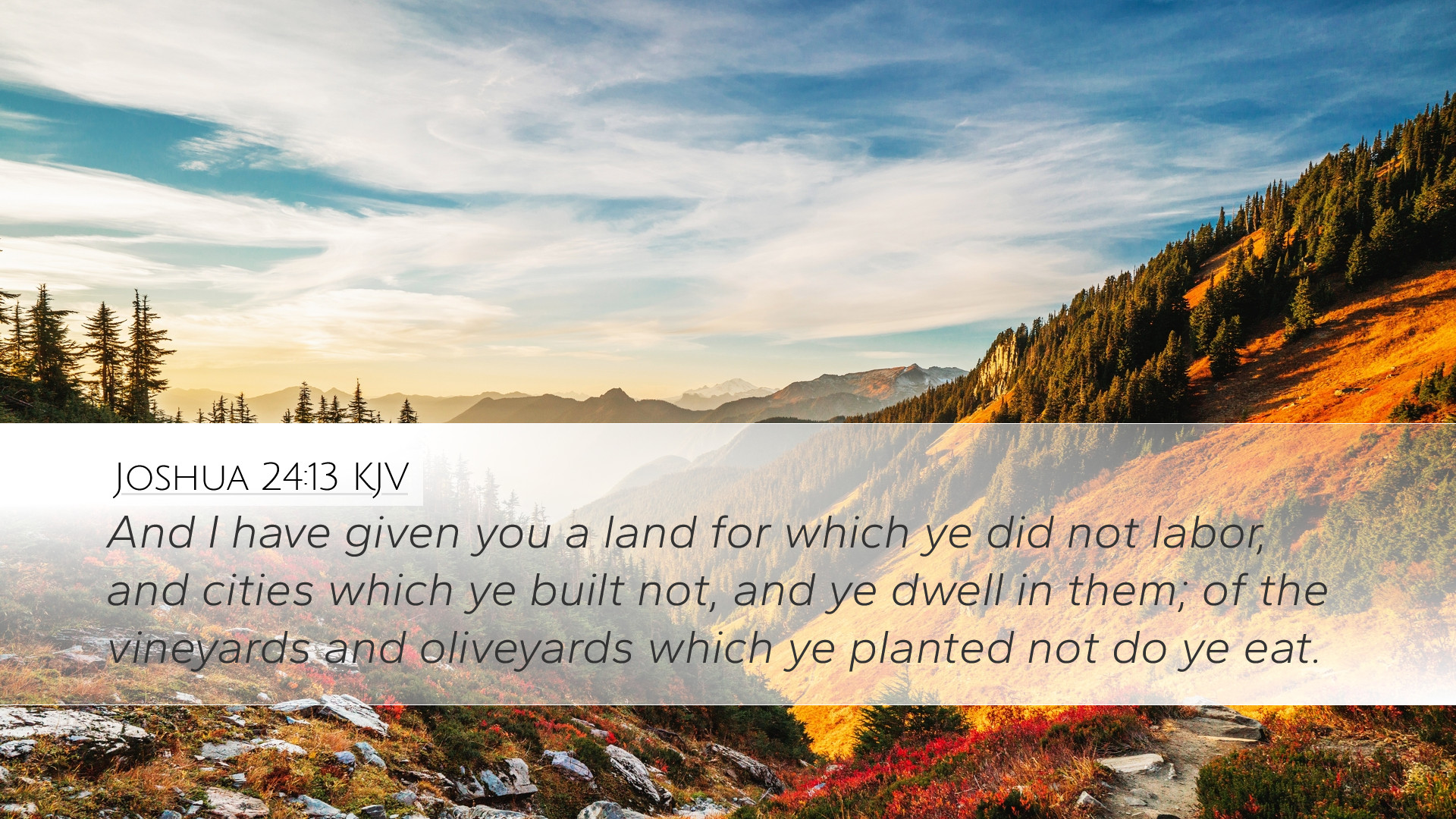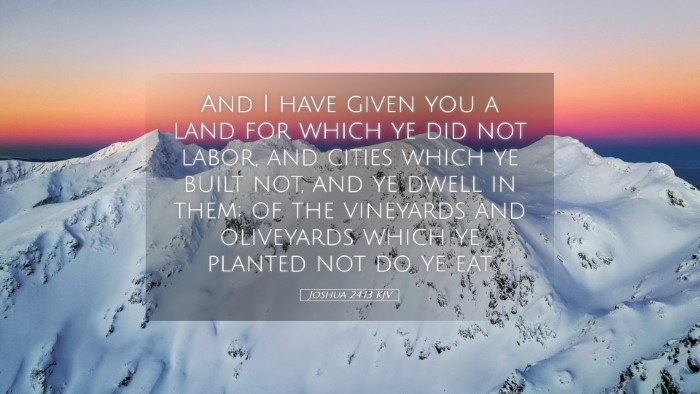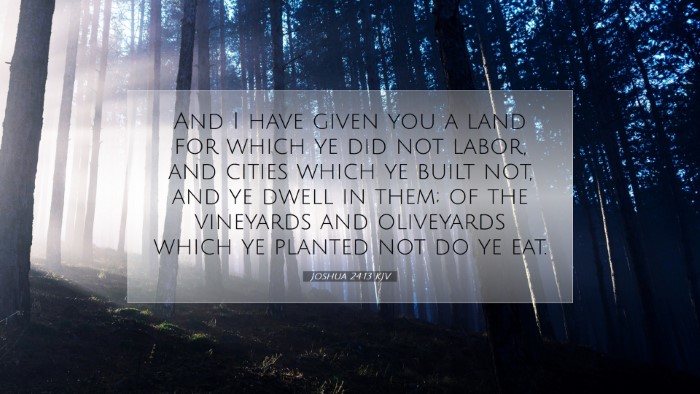Bible Commentary on Joshua 24:13
Verse: Joshua 24:13
"And I have given you a land for which you did not labor, and cities which you did not build; and you dwell in them, and you eat of the vineyard and olive groves which you did not plant."
Contextual Overview
The declaration in Joshua 24:13 is significant as it encapsulates the promises of God towards the Nation of Israel. This verse comes at the culmination of Joshua's farewell address, a moment where he recounts the Lord's faithfulness throughout their history and emphasizes the abundance that God has granted them. This context is crucial for understanding the implications of the blessings bestowed upon the Israelites.
Thematic Insights
- Divine Provision: The foundation of this verse is God's provision for His people. Matthew Henry notes that the Israelites were beneficiaries of God's grace; they received land and cities without toil, showcasing the unmerited favor of God.
- Faithfulness of God: Albert Barnes emphasizes the faithfulness of God in fulfilling His promises. The land refers to Canaan, which was given to them, marking a pivotal point in their relationship with Yahweh—a faithful God who delivers on what He has promised.
- The Importance of Acknowledgment: Adam Clarke stresses that this acknowledgment of what God has provided should lead to gratitude and worship. The act of recognizing our blessings serves to fortify our faith and responsibility towards God.
The Historical and Spiritual Significance
This verse serves as a reminder of the spiritual inheritance that believers have in Christ as well. Just as the Israelites possessed lands and cities they did not labor for, so too do Christians benefit from the sacrificial work of Jesus without deserving it. The blessings underscore the theme of grace that runs throughout Scripture.
Unpacking the Blessings
- The Land: The land symbolizes not just a physical territory but a place of God’s provision, safety, and inheritance for His people. Henry notes that their settlement in Canaan was an act of divine favor.
- The Cities: The cities imply ready-made communities for the Israelites, reflecting the grace of God in providing for both their physical and societal needs. Barnes highlights that these cities were testimonies of God’s greatness.
- The Vineyards and Olive Groves: These elements represent sustenance and the flourishing of life. They serve as metaphors for how God nurtures His people and provides for their future—a reminder that His blessings are abundant.
The Call to Faithfulness
This verse also carries an implicit call to faithfulness in response to God's generosity. Joshua exhorts the Israelites to remember the Lord's deeds and to serve Him wholeheartedly. Clarke points out that such remembrance should elicit a spirit of deep reverence and commitment to living according to God's statutes.
The Response of the People
- Gratitude: The proper response to God's provision is gratitude. The Israelites were called to recognize their dependence on God and to offer thanks for all they had received.
- Commitment to Serve: The acknowledgment of God's gifts should compel believers towards a deeper commitment to serving Him. Following verse 14, Joshua encourages the people to choose whom they will serve, thereby emphasizing the choice each individual has to live in accordance with God's decrees.
Conclusion
Joshua 24:13 serves as a profound reminder of God’s unmerited favor and blessings in the lives of His people. For pastors, students, theologians, and scholars, this verse is not merely a historical account but a living testament to the ongoing relationship between God and His followers. The challenge is to acknowledge these blessings and respond with faithfulness, gratitude, and a commitment to His service.
Reflection Questions
- How do we recognize the unearned blessings in our lives today?
- In what ways can we express our gratitude for God’s provision?
- What does it mean for us to serve the Lord fully in our current context?


